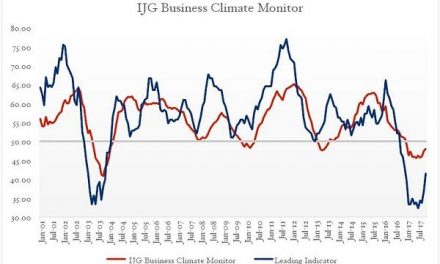
Climate change and a changed climate are two different animals
South Africa’s major Indian Ocean seaboard city, Durban, is moving to centre stage as it prepares for the 17th Conference of Parties to the UN Convention on Climate Change, the so-called COP 17 meeting.
The ultimate aim of the conference would be to draft an agreement on emission reduction that can replace the largely-ignored Kyoto protocol when it expires next year. In preparation for the COP 17 meeting, environment ministers of the Southern African Development Community met here in Windhoek earlier this year to agree on a common approach and strategy for COP 17. Out of the Windhoek meeting came the usual political response of capacity building, skills and technology transfer, mitigating risks, and funding. Arguably the most important point of agreement was the realisation that if SADC does not speak with one voice in Durban, we run a serious risk of being smothered by the noise, and not being heard at all.
The Durban conference is of a scale and importance, the magnitude of which we often do not fully appreciate. It is a truly international meeting and it is supposed to represent all the nations of the entire world. The outcome of this conference, it is hoped, will lead to a roadmap, that will not only replace the Kyoto Protocol, but also serve as the foundation for binding future multi-lateral agreements, that one day, will be enforceable by the international community, on the international community.
I know that at this point it is a bit of a long shot considering the total disregard of the protocol by the Americans, coupled with the fact that the Chinese do not know of its existence, and other culprits like Russia, pay lip service to it and then blatantly promotes some very dirty industry. But that is a political issue and it does not change the fact that climate change has become a reality of everyday existence.
Take for instance the repeated flooding we have experienced in the north for several years. The first half of this year, the flooding climaxed in a way we have never seen before. Another very recent example is Thailand where the flood damage has grabbed headlines for the past month.
A very simple question now arises: Who is responsible for these unprecedented weather conditions, and more important: Who will pay to remedy the damages?
These are two major considerations for us in southern Africa, but if SADC countries do not stick together and fight as one block at the climate change conference, nothing will be accomplished. Perhaps climate change offers us the very first compelling opportunity to force SADC leaders to unite.
But let’s look at the development implications of climate change. Although it is now widely recognised that climate change needs our attention, I prefer to view it slightly different. For me it is not a quasi-academic point of how severe climate change will be and what the ultimate cost will be. I see it more in the sense of a “Changed Climate.” By this slight semantic adjustment, I infer that a changed climate is a fait accompli and that all the conferences in the world, will not change it.
We can debate the issues as much as we like but we cannot change it. In other words, I believe it is already too late to agree on ways of how to prevent or mitigate climate change. We have already reached the point where any response can only be reactive. What we need to discuss as a matter of urgency, is how we will fund our responses. And by placing the emphasis on the funding aspect, it should immediately highlight the fact that we in Africa will probably be least able to counter the cost and the effects of climate change.
Alongside emission reduction targets, finding funding to counter the damage caused by climate change, will become our top priority.
Say the changed climate causes us losses every year equalling 1% of GDP, it means where we can now make do with annual growth of 3.5%, we will have to up that to 4.5% just to break even. To make all our other dreams of development and prosperity come true, the new minimum for real growth will have to be 5.5%, and that we know, is not so easy. Keep in mind also, that climate change will not go away meaning it is not seasonal. In an economic sense, it is structural and it will become more entrenched the deeper one looks into the future. This means, the cost of climate change is here to stay and it is set to increase.
The logical outcome of this line of reasoning is that we will have to keep growing faster and faster just to stay even. And that we all know, is not possible. This should make every single African realise how important next week’s conference is.











































